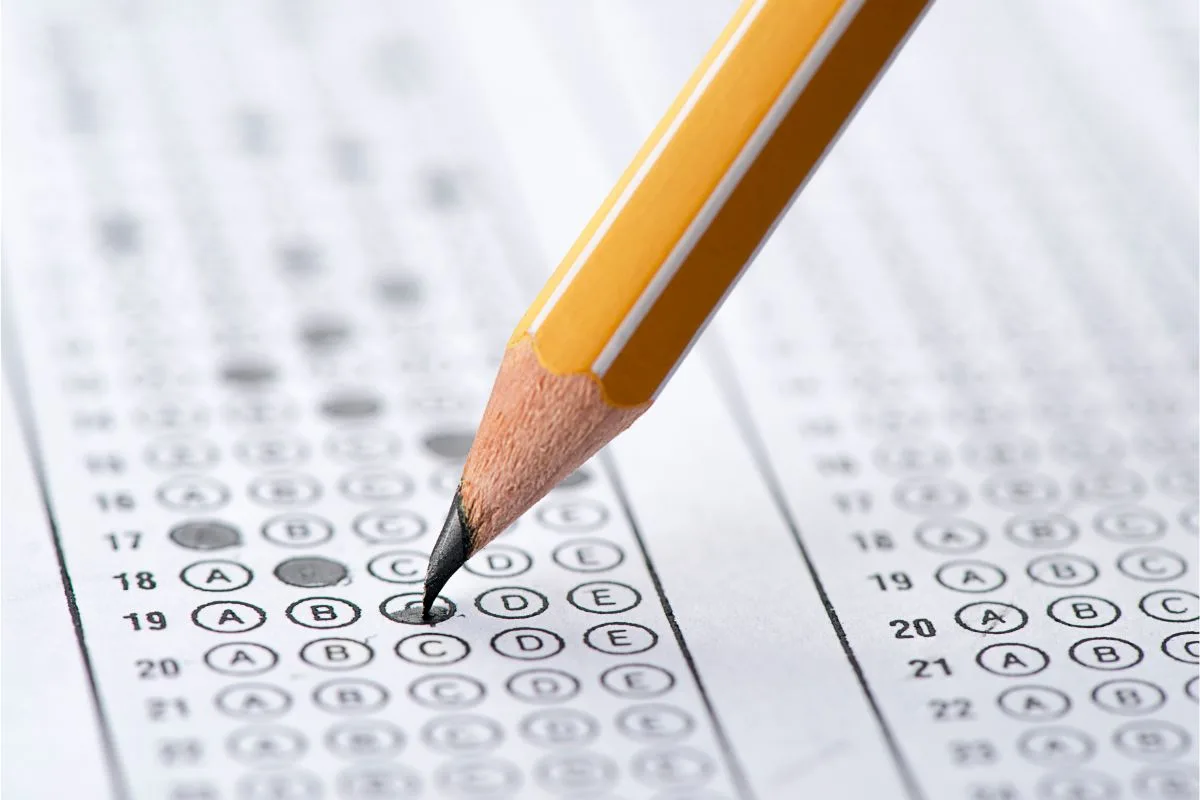There have been arguments for decades over the most effective way to test the intelligence and transferable skills of students learning any number of pursuits.
Some argue that testing doesn’t suit some learners and limits their creativity whilst others argue for logic.

Tests are a part of life, from driving to getting an education it is rare that people can escape having to take a test in one form or another.
They might not be liked, but they are necessary. Are you wondering who would make such a stressful method of testing one’s knowledge?
This article looks into the history of testing in schools and the inventor of this educational assessment method.
The First Known Test
Although tests might feel like a hardship that only you’ve had to face, they’ve been around for hundreds of years.
The ancient Chinese dynasty known as the Sui Dynasty has records of standardized tests being taken called imperial examinations.
This occurred in 605 AD and was used to select candidates for roles in the government. Other Dynasty rulers perfected and enhanced this process and it was fully developed during the Qing Dynasty.
The First Exam
It is thought that a philanthropist and businessman named Henry Fischel was the first person recorded to conduct a school examination in the 19th century.
The idea behind his tests was to assess how much information his students had retained from their lessons as well as the ability to put it to use.
He wanted to know whether or not his teaching was a waste of time or whether it just went over the student’s heads.
Although Fischel’s area of expertise was religion and philosophy, he paved the way for school systems to use examinations as a general method of testing students.
The First Standardized Test
A standardized test is one that measures the knowledge and skills of a student based on specific subjects. These tests have been given their name as they are scored in a standardized and consistent way.
These tests mean that all students who take the same class will be given the same questions with the same amount of time to take this test.
The points available for each correct answer will also be consistent across students.
A man named Frederick J. Kelly came up with the first set of multiple-choice tests.
The tests were designed so they could be easily administered and effectively marked and have remained largely unchanged since their invention.
Records show that standardized tests were introduced into the American schooling system around 1840.
Formal written tests started to replace oral tests as the norm which made learning more accessible to lower-class students.

Modern-Day School Tests
Today we have to complete tests all the time at school and in our final years, we have to complete tougher, more in-depth exams to prove we’ve finished high school.
These tests are standardized academic tests that are required by American public schools.
Receiving your high school diploma means you’ve completed your education to the required standards set out by state law and taken your final exams.
This is pretty standard in secondary education across the world, tests must be taken to prove your knowledge.
University education typically requires students to complete end-of-year exams before they can receive their diplomas and graduate.
However, creative subjects may require completed coursework and physical work to prove the student has met the course requirements.
Benefits Of School Tests
Let’s take a look at some of the arguments for the use of standardized testing in schools.
It’s Fair
One of the main arguments for the use of standardized testing is the fact that it is fair. It takes away the differences between students and gives them an equal chance.
These tests are taken in exactly the same way, under the same conditions to measure one’s knowledge.
They Provide Data
Data is a powerful tool in the education system. In terms of testing, it can be used to determine how successful the tests are and the quality of the curriculum.
Data can be compared across schools to identify what some are doing right and others are doing wrong.
They Can Ensure Extra Help Is Received
When a student doesn’t perform particularly well on a test, this is an opportunity for the teacher to offer extra support and identify why they are struggling.
Are there any additional learning needs that could benefit the student? Hopefully, the issues can be ironed out here.
Negatives Of School Tests
Now we will focus on some of the arguments against standardized testing in schools.
They Aren’t A Complete Picture Of Ability
If one student does really well on a test, does that mean they have transferable skills? When another student does poorly on the test, does that mean that they do not understand any of the materials?
Unfortunately, tests aren’t a true measure of a student’s capabilities and intelligence. Some may be better test takers than others and some may perform better under pressure.
Students Can Lose Confidence
When students do not receive the scores they hoped for, this can be a major blow to their confidence and cause them to lose faith in their abilities.
The fact that students are ranked against one another by these scores also causes excessive comparison.
Test-taking can be such a stressful experience for some which causes them to negatively perform, even if they are extremely bright. As a result, it doesn’t reflect their true potential.
It Can Impact School Funding
In America, standardized test scores impact how much funding the school receives. Those with lower state and federal test scores may even be cut off from funding altogether.
Unlike other countries, many private schools are exempt from these testing requirements which may benefit them more.
The Bottom Line
Tests date back as far as 605 AD and continue to dominate modern education. Regardless of your view of school testing, they are an important part of our education system and should be taken seriously.
- Homeschooling In High School: Pros And Cons - February 24, 2024
- How Do I Withdraw My Child From School To Homeschool? - February 23, 2024
- How To Not Go Crazy Homeschooling Kids: A Guide For Frazzled Parents - February 22, 2024









Leave a comment